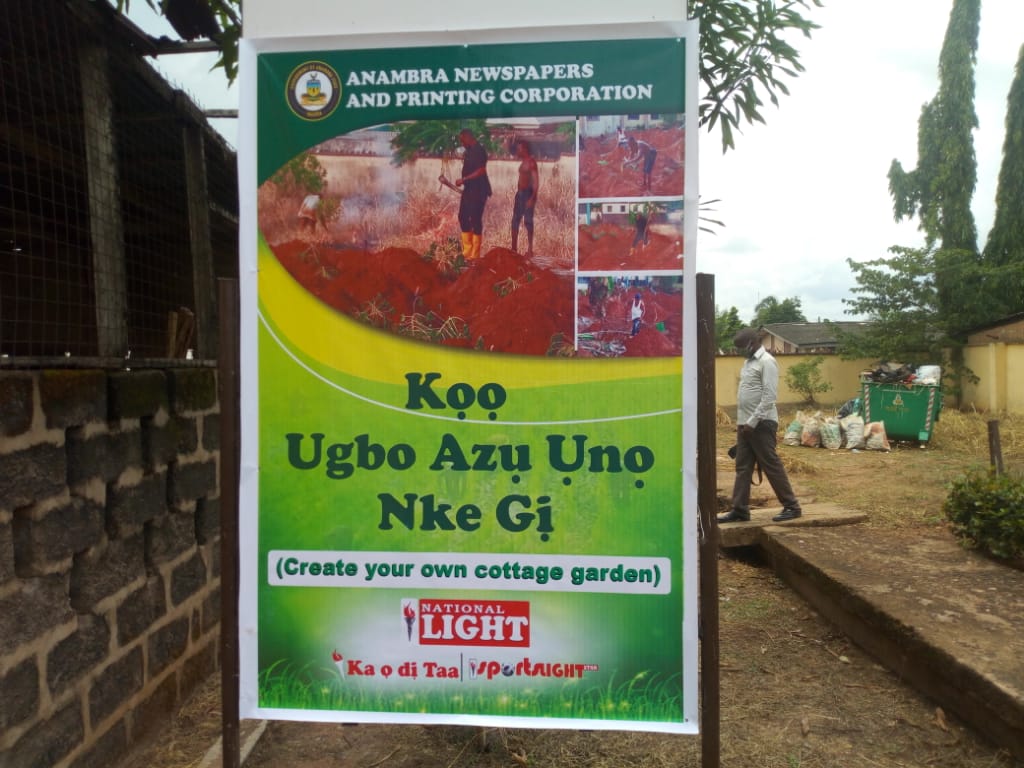Written By: SIR PAUL NWOSU
In the years gone by, there was hardly food shortage except during the civil war, which dislodged people from their places of occupation and homes, thereby causing famine, hunger, malnutrition and death.
In those days, it was believed that only lazy people go hungry. For, insofar as a man has his hands and legs, he is expected to have a farm land somewhere around his community or within his immediate compound from where he meets his basic dietetic requirements.
Backyard Farming or “Iko Ugbo Azu Uno” is an age long practice in Igbo land where families cultivate and maintain different types of crops in their backyards or compounds. In their Backyard Farms, they planted different varieties of vegetables and root crops like cassava, yam and cocoyam.
In addition to these, they also kept birds like chickens, guinea fowls and ducks, as well as animals such as cows (Efi Igbo), goats (Ewu Igbo) and sheep (Aturu Igbo). Those living in the riverine areas set permanent fish traps in rivers and streams close to their homes.
This culture also encouraged people living on their homesteads and personal properties to plant economic trees such as palm trees, oranges, mangoes, cherries, cashew, peers and guava just to mention a few. The fruits borne by these economic trees can be consumed by the family that owns them or sold at the market.
Aside from making food stuffs easily and cheaply available, Ugbo Azu Uno provides organic foods with high concentration of nutrients all year round. It’s no wonder therefore that people lived till very old age in those days.
Backyard Farm is unique because of its close proximity to the family kitchen. Because food storage facilities, as we have today, were lacking, Ugbo Azu Uno was the first port of call of any family that wanted to procure its immediate food items for cooking. It is only when an item is lacking in the Backyard Farm that the family goes to the market to buy it.
However, due to urban migration and the quest for Golden Fleece, this home agricultural tradition gradually faded away to the point where families now resort to buying every single food item from the market. It is this rich agricultural tradition that Governor Willie Obiano seeks to reintroduce in Anambra State when he launched Ugbo Azu Uno scheme.
The initiative is essentially to compliment the food producing effort of the agricultural formal sector, thereby increasing the overall food chain in Anambra State. It is also aimed at ensuring that Ndi Anambra have easy and cheap access to fresh nutritious vegetables and other agricultural produce to boost their immune systems in the face of the prevalent pandemic.
We should recall that Governor Obiano launched this year’s farming season with an unprecedented support to farmers. He did this to significantly improve the year’s harvest and forestall possible food shortage that is envisaged because of COVID-19.
To this end, he disclosed that Government has secured 3,000 hectares of land in the agricultural belt which would gainfully employ 2,000 youths from those communities. And to mitigate drudgery, tractors and implements have been bought to cultivate the acquired land.
That is not all, two hundred women and youths, randomly selected from the 21 local government areas, have been empowered with poultry cage and accessories, 4000 day old chicks, feeds and medications. Inputs such as rice, maize and yam seedlings as well as cassava stems have also been distributed to farmers. And to ensure that the crops grow unhindered, Anambra State Government has provided farmers with fertilizers and chemicals of different kinds.
Those living in flats can plant assorted vegetables in old and discarded containers on their balconies and verandas. Churches, educational institutions, corporate entities, government agencies and business organizations are also invited to join the moving train. Good food is a deterrent to disease. And a well-fed people are a happy people.





Comments are closed for this post.